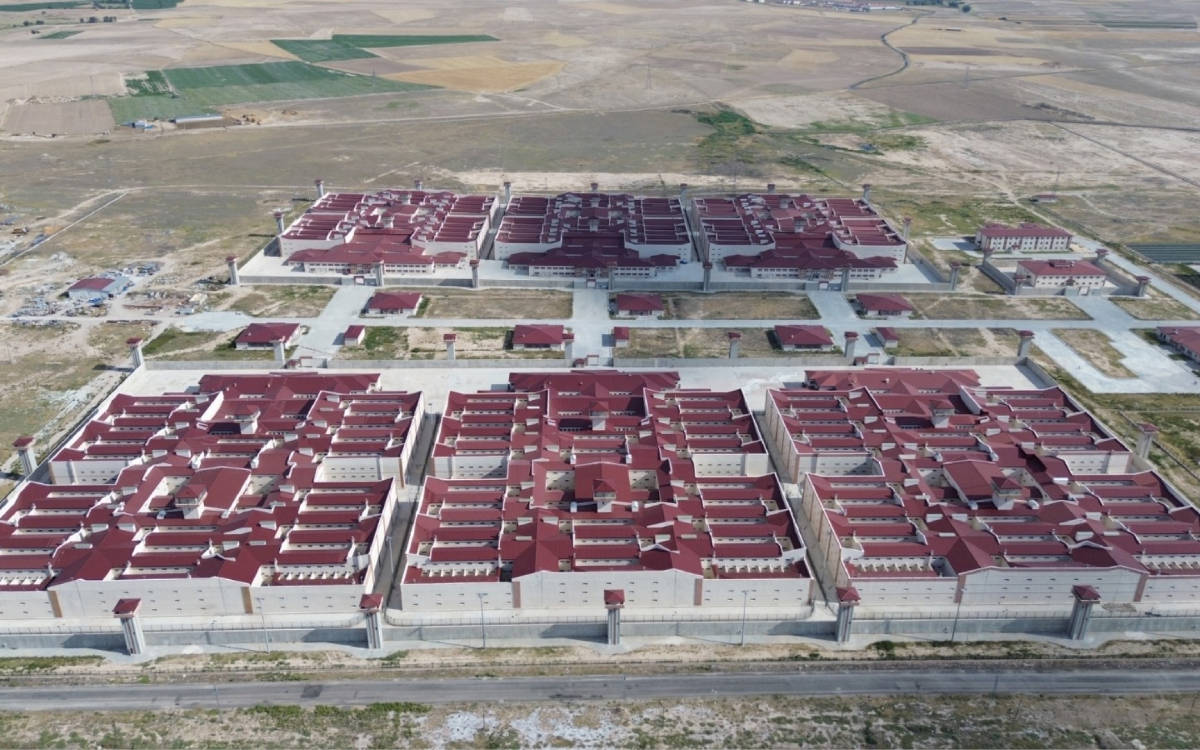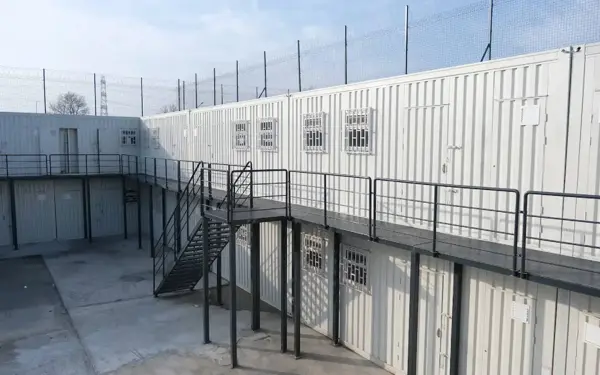The Contemporary Lawyers Association (ÇHD) organized a press conference at the Istanbul Bar Association Cultural Center to protest Y-type, S-type, and High Security Prisons - facilities categorized by lawyers as "well-type" prisons.
The statement highlighted ongoing indefinite hunger strikes in these prisons, demanding an end to aggravated isolation conditions and the closure of such facilities. Lawyer Güçlü Sevimli delivered the opening speech, while lawyer Seda Şaraldı read the press statement.
Subsequently, Onur Yoldaş Mete from the Socialist Youth Associations Federation (SGDF) and Vedat Doğan from the music band Grup Yorum shared their personal experiences of rights violations endured in these prisons.
"The isolation policy has entered a new phase"
Lawyer Güçlü Sevimli stated that the isolation policy, which began with F-type prisons in the 2000s, intensified significantly starting in 2021:
"Y-type and S-type prisons, along with High Security Prisons, have become institutions where aggravated isolation is systematically implemented. The Ministry of Justice operates these prisons with complete opacity, providing no transparency to the public."
Sevimli reported that there are approximately 40 so-called well-type prisons across Turkey, including facilities still under construction. He emphasized that the physical conditions and practices in these prisons constitute clear violations of Article 25 of the Law on the Execution of Sentences and Security Measures:
"Even detainees not sentenced to aggravated life imprisonment are permanently held in single cells. This amounts to an indefinite solitary confinement sentence - a practice that is fundamentally unlawful."
"From social life to isolation: structures that violate human rights"
Lawyer Seda Şaraldı, reading the press statement, characterized well-type prisons as "structures designed to destroy a person's social nature." She detailed their defining features:
- Cell Types: Only single-person or three-person cells exist
- Ventilation: Inadequate airflow limits sunlight exposure to one hour daily
- Windows: Nearly completely sealed, blocking natural light
- Surveillance: 24/7 camera monitoring violates privacy rights
- Social Rights: Severe restrictions on conversation and communal activities
- Location: Remote placements intentionally hinder family visits and legal access
Şaraldı stressed: "The explicit purpose of well-type prisons is to isolate prisoners under extreme conditions, cutting all human contact to individualize and break their political will."
She also provided updates on nine current hunger strikers, whose health conditions have deteriorated critically:
- Sercan Ahmet Arslan (Buca High Security Prison, Day 219): Sores in nose and mouth; chronic foot pain; severe insomnia.
- Serkan Onur Yılmaz (Antalya High Security Prison, Day 197): 24kg weight loss; balance disorders; wheelchair-bound during visits.
- Ayberk Demirdöğen (Day 77 of hunger strike)
- Bakican Işık (Sincan No. 2 High Security Prison, Day 158): Critical weight loss; sores in the mouth, back, and face,
- Mithat Öztürk (Sincan No. 2 High Security Prison, Day 102)
- Ali Aracı, Ali Hasan Akgül & Ufuk Keskin (Sincan No. 1 High Security Prison, Day 97): Keskin suffers from severe diabetes, celiac disease, and lactose intolerance. Medical reports confirm he requires constant supervision.
- Fikret Akar (Çorlu Karatepe High Security Well-Type Prison, Day 57)
- Yurdagül Gümüş (Transferred from well-type prison, Day 144): Protesting for son Bakican Işık; suffers from foot pain, insomnia, and balance issues
"Even basic human contact is forbidden"
SGDF member Onur Yoldaş Mete described his experience in Çorlu Karatepe Prison:
"You spend 23 hours daily confined to a dark single cell. Even sharing reading materials with other prisoners is prohibited. These conditions are engineered to destroy communication skills and emotional regulation."
Grup Yorum's Vedat Doğan recounted his 178-day hunger strike and the state's deliberate obstruction:
"Authorities deliberately prolonged our suffering – denying water, providing rotten lemons, and administering B vitamins in subtherapeutic doses. The physical and psychological scars remain. We literally had to risk death before they approved our transfer requests."
In closing, ÇHD issued a warning about the potential normalization of this isolation regime:
"Without organized social resistance, all Turkish prisons may adopt this well-type model. We implore every conscientious citizen to oppose this brutal system and stand in solidarity with the hunger strikers."
(HA/DT)











